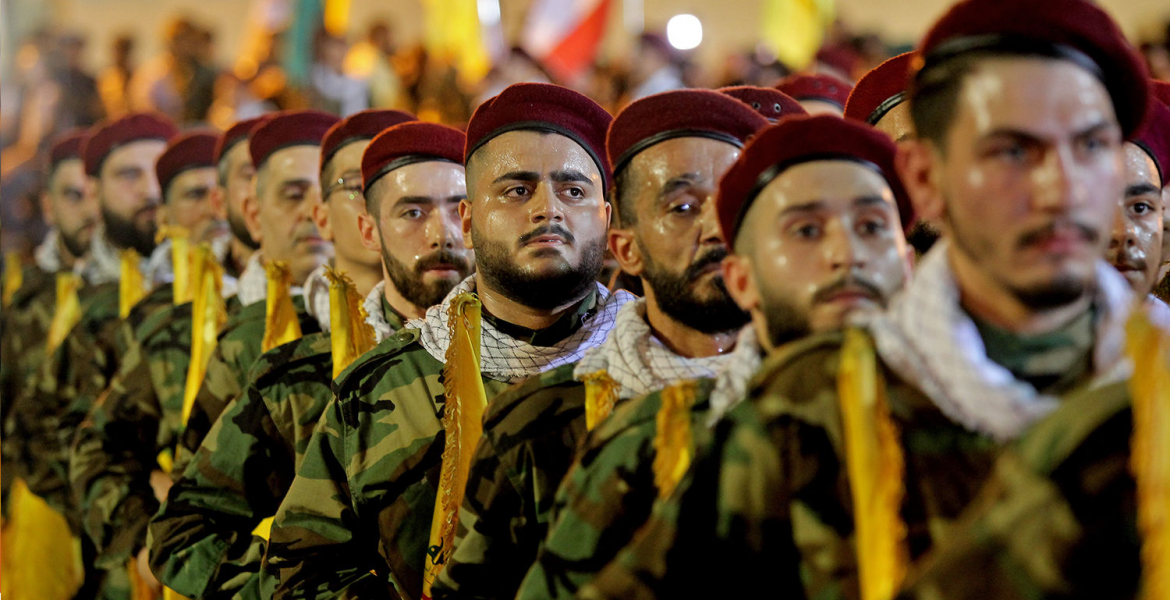By David Ibsen
The Lebanese government’s application to the IMF for $10 billion worth of aid in order to stave off economic collapse represents a golden opportunity for the world to bring pressure to bear on Beirut and force it to separate from the terror group Hezbollah.
The timing could not be more opportune. Hezbollah is on the brink of capturing the Lebanese state. If this point of no return is reached, it will have dire consequences for the people of Lebanon and the stability of the entire Middle East.
The EU has its part to play and there is growing pressure for Brussels to take affirmative action. Berlin has already proved the merit of moving decisively against the terror group.
Germany’s decision to terror-list the entire Hezbollah organisation on 30 April heralded a new era for Berlin’s anti-terror policy.
Until that date, Germany, like many other EU member states, maintained a legal distinction between Hezbollah’s military and political wings. While the former was officially listed as a terror organisation the latter was deemed separate and allowed to roam free.
Berlin’s dramatic decision to reverse its long-standing policy means Germany now joins the Netherlands and former EU member Britain in classifying Hezbollah’s military and political functions as two sides of the same coin. Outside of Europe, the United States, Australia, Canada, Israel, the Arab League and the Gulf Cooperation Council have all adopted similar policies.
There is not now, and never has been, any convincing argument for maintaining the fictitious distinction between a political and military Hezbollah.
Hezbollah’s own spokesperson, deputy secretary-general Naim Qassem, has repeatedly denied that any separation exists between the two, claiming that “We don’t have a military wing and a political one; we don’t have Hezbollah on one hand and the resistance party on the other.”
By allowing Hezbollah to continue operating in Europe, under the aegis of its political function, Brussels is endangering its own citizens and stability in the Middle East.
Hezbollah has repeatedly engaged in violent extremist activities within Europe’s borders.
The group was responsible for the 1985 hijacking of TWA Flight 847 traveling from Athens to Rome and was implicated in the 2012 bus bombing in Burgas, Bulgaria, which killed six Israeli tourists and wounded many more.
It was this latter incident which gave rise to the ‘two Hezbollahs’ legal fiction with which we are familiar today. Spurred into taking action against the terror group, European member states nonetheless remained wary of damaging ties with Lebanon. Yet, the resulting legal fiction has done nothing to prevent Hezbollah from continuing its terror activities in Europe.
A year after the Burgas bus bombing, a Cypriot court sentenced a Hezbollah operative to prison for planning attacks on Israeli targets. Berlin’s secretive decision to swoop on Hezbollah-affiliated organisations on 30 April was reportedly motivated by intelligence suggesting that Hezbollah affiliates operating in southern Germany were stockpiling large quantities of ammonium nitrate, an ingredient used to make explosives.
Only an EU-wide ban of the entire Hezbollah organisation will prevent it from continuing to use Europe as a base from which to recruit, finance and plan its attacks.
Meanwhile, the terror-group’s take-over of the Lebanese state continues to grow apace.
The election of Prime Minister Hassan Diab in January 2020 represented a further step forward for Hezbollah as it seeks to integrate itself to the routine operation of the Lebanese state.
Lebanon’s application to the IMF represents a rare moment of supplication from the Middle Eastern state. But if the world is going to bail out Beirut, the trade-off must be that it turns away from Hezbollah, once and for all.
By proscribing Hezbollah in its entirety, the EU can send out a strong signal that there is no grey area when it comes to standing up to terror and that the price of prosperity is peace.
The Author, David Ibsen is the Executive Director of United Against Nuclear Iran (UANI), a not-for-profit, bi-partisan, educational and advocacy group that seeks to prevent Iran from fulfilling its ambition to obtain nuclear weapons.




